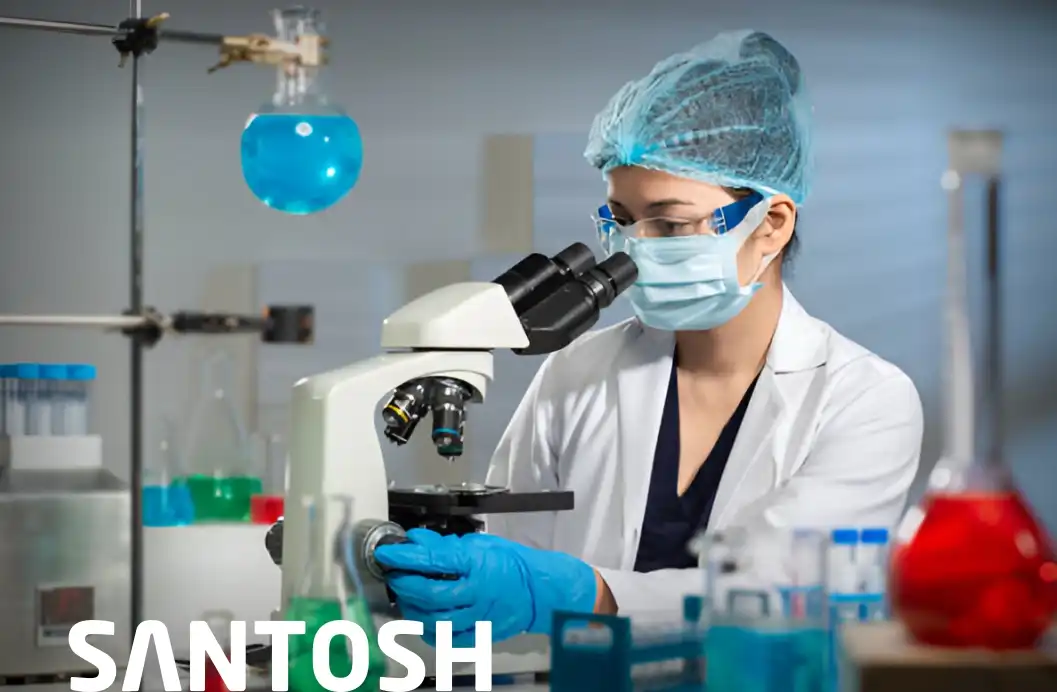Overview
A Master of Science (MSc) in Medical Biochemistry is a postgraduate degree program that focuses on the study of the biochemical processes that occur within the human body and how they relate to disease. This program provides students with an in-depth understanding of the molecular and cellular mechanisms that underlie human physiology and pathology, including the study of enzymes, proteins, carbohydrates, lipids, and nucleic acids.
Students in this program will develop a strong foundation in the principles and techniques of biochemistry, as well as gain an understanding of the role of biochemistry in modern medical research and practice. They will also learn how to design and carry out experiments, analyze data, and communicate their findings to a variety of audiences.
Coursework in an MSc in Medical Biochemistry program typically includes topics such as biomolecular structure and function, molecular biology, cell signaling and communication, metabolism, and molecular genetics. Students may also have the opportunity to specialize in areas such as cancer biology, infectious diseases, or neurochemistry.
Graduates of an MSc in Medical Biochemistry program are well-prepared for careers in research, academia, or the pharmaceutical and biotechnology industries. They may work as research scientists, medical writers, or scientific consultants, among other roles. Some graduates may also choose to pursue further education, such as a Ph.D. in Biochemistry or related field.
Curriculum
Eligibility Criteria: The Candidate who possesses a degree of MBBS/BDS/BMLT/BOT/BMM/B.Pharma/BAMS/Bio-Tech/B.Sc Biochemistry/B.Sc Nursing/B.Sc Degree with Physics, Chemistry, Botany, or Zoology with 50% Aggregate marks as the main subjects, are eligible to apply for M.Sc Medical Biochemistry.
Course Outline:
First Semester:
- Anatomy
- Biochemistry – I
- Pharmaceutical Biochemistry and Toxicology
Second Semester:
- Physiology
- Biochemistry-II
- Advanced Endocrinology
Fifth Semester:
- Immunology
- Biotechnology
- Neurochemistry
- SWAYAM / MOOCS / NPTEL / Institution offered Skill courses
- Basics of computer and IT skills, data analysis, Personality development etc (Any one)
- Basic of NABL Accreditation
Sixth Semester:
- Cancer Biology
- Specialized tissue Biochemistry
- Advanced Immunology
- Project Work / Dissertation
Team
Career Prospective
- Research Scientist: Graduates may work as research scientists in academic, government, or private sector laboratories. They may conduct research on disease mechanisms, drug development, or biotechnology.
- Medical Writer: Graduates may work as medical writers, creating scientific reports, manuscripts, or regulatory documents for pharmaceutical and biotechnology companies, government agencies, or academic institutions.
- Scientific Consultant: Graduates may work as scientific consultants, providing expertise in medical biochemistry to clients in various industries, including healthcare, pharmaceuticals, and biotechnology.
- Biotech Industry: Graduates may work in the biotech industry, developing new drugs or biotechnologies, or working in quality control and regulatory affairs.
- Academia: Graduates may work as faculty members at colleges and universities, teaching and conducting research in the field of medical biochemistry.
- Medical Laboratory Supervisor: Graduates may work in diagnostic medical laboratories, performing tests and analyses on patient samples.
- Medical Science Liaison: Graduates may work as medical science liaisons, acting as a bridge between pharmaceutical companies and healthcare professionals to provide scientific and medical information about products.
- Medical editors: Medical editors review and edit medical publications, ensuring accuracy and adherence to standards. They may work for journals, academic institutions, or freelance, and specialize in specific areas of medicine.
- Agriculture: Agriculture offers diverse career opportunities in farm management, agricultural engineering, sales and marketing, research, agribusiness management, environmental management, education, and government agencies, NGOs, and international organizations.
Overall, an MSc in Medical Biochemistry provides graduates with a strong foundation in the principles and techniques of biochemistry and prepares them for a variety of career opportunities in the growing fields of medical research and biotechnology.
